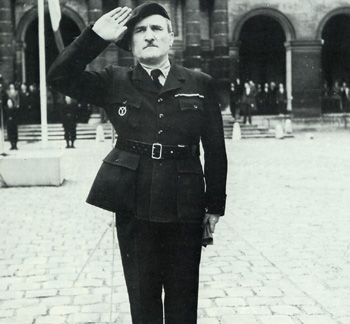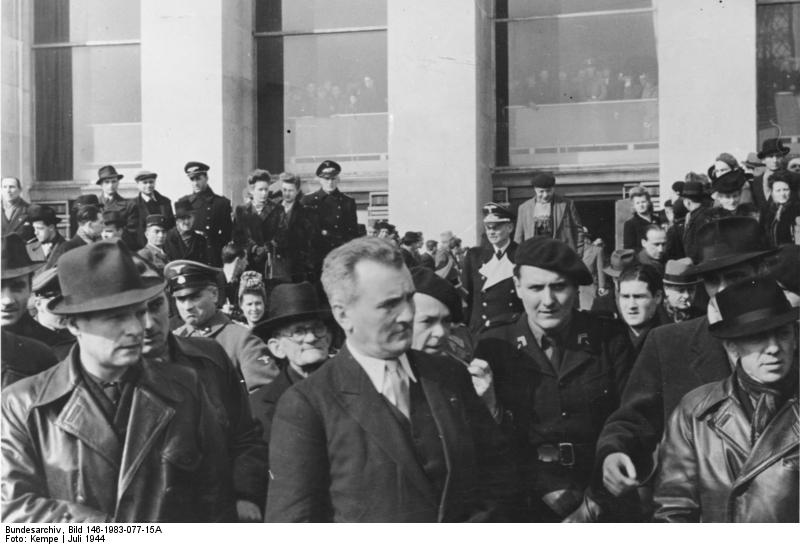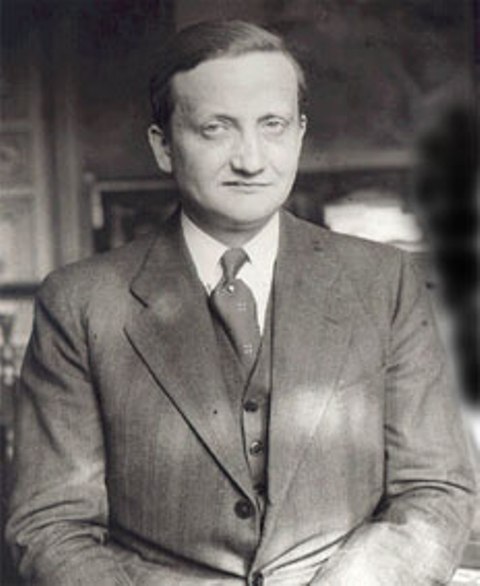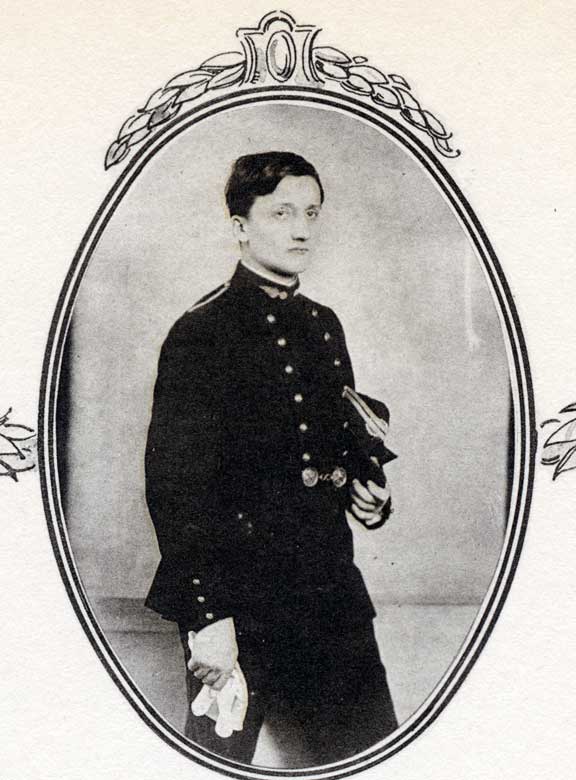<Back to Index>
- Minister of the Interior of the Governmental Commission Joseph Darnand, 1897
- Minister of Industrial Production Jean Bichelonne, 1904
PAGE SPONSOR


Joseph Darnand (19 March 1897 – 10 October 1945) was a French soldier and later a leader of the Vichy French collaborators with Nazi Germany.
Darnand was born at Coligny, Ain, Rhône - Alpes in France. He fought in World War I and received seven citations for bravery. After the war, he worked as a cabinetmaker and later founded his own transportation company in Nice. He also supported the Orléanist group Action Française.
Darnand joined a number of right wing political, paramilitary organizations; l'Action Francaise in 1925, les Croix - de - Feu in 1928, La Cagoule and Jacques Doriot's French popular Party (PPF) in 1936. He formed his own Fascist outfit, the Chevaliers du Glaive, in the '30s became prominent among the Cagoulards ("Hooded Men") a secret terrorist group which organized bombings and assassinations, stored arms depots all over France.
At the beginning of World War II, Darnand volunteered to join the French army and served in the Maginot Line and was decorated for bravery. He was captured in June 1940 but fled to Nice. He became a leading figure in the Vichy French organization Légion Francaise des combattants (French Legion of Veterans) and recruited troopers for the fight against Bolshevism.
The next year, he founded the collaborationist militia, Service d'ordre légionnaire (SOL), that supported Philippe Pétain and Vichy France. He offered his help against the French Resistance. On 1 January 1943 he transformed the organization into the Milice. Although Pierre Laval was its official president, Darnand was its de facto leader. Darnand's political convictions were of the far right but he was known as a Germanophobe: on three occasions he attempted to join the Resistance or flee to free French territory. Each attempt was rebuffed. The last overture to the Free French was made in July 1943. After its failure Darnand definitively turned to Nazi Germany and the next month was made an officer of the SS. Darnand's turn to the SS was also influenced by the fact that miliciens were being targeted for assassination by the Resistance but Vichy and Wehrmacht authorities refused to arm the Milice. In joining the SS, Darnand took a personal oath of loyalty to Adolf Hitler, receiving a rank of Sturmbannführer (Major) in the Waffen SS. In December 1943, he became head of police and later secretary of the interior. Joseph Darnand expanded the Milice and by 1944 it had over 35,000 members. The organization played an important role in investigating the French Resistance. After the Normandy Invasion and Allied advance, Darnand fled to Germany in September 1944 and joined Pétain's puppet government in Sigmaringen. In April 1945, he had to flee from Sigmaringen to Meran in Northern Italy. He was captured after the war by the Allies in Italy and taken back to France, where he was sentenced to death on 3 October 1945 and executed by firing squad on 10 October 1945 at the Fort de Châtillon.


Jean Bichelonne (1904 - 21 December 1944) was a French businessman and member of the Vichy government that existed during World War II following the occupation of France by Nazi Germany.
Born in Bordeaux, Bichelonne was a graduate of the École Polytechnique and gained an early reputation for his brilliant organizational skill as well as his photographic memory. Following the establishment of Vichy, Bichelonne assumed his first important role in September 1940 when he was appointed head of the Office central de repartition des produits industriels, a body that determined how raw materials would be proportioned between the newly established comites d'organisation (corporatist bodies in charge of each industrial sector). Along with the likes of Jacques Barnaud, François Lehideux and Pierre Pucheu, Bichelonne was a member of a group of technocrats who held important positions in the early days of the Vichy regime.
As Minister of Industrial Production, Bichelonne faced the problem of demands for slave labor from the Nazi Labor Deployment Minister Fritz Sauckel, and the impact it was having on French industry. He managed to overcome this difficulty by securing an agreement with Albert Speer in September 1943 to the effect that the entire French industrial sector would be Sperrbetrieben, making it effectively off limits to Sauckel.
Bichelonne was one of the cabinet members taken under SS guard from Vichy to Belfort on the night of 17 – 18 August as the Nazis desperately sought to maintain the collaborationist government by any means necessary. Moved to Sigmaringen, Bichelonne fell ill and was sent to the SS hospital at Hohenlychen where it was officially recorded that he died of a pulmonary embolism, although unsubstantiated rumors suggested that he may have been assassinated.